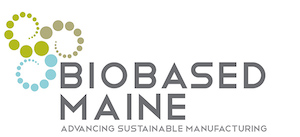Finland Makes Batteries from Trees. Can Maine?

While Maine and Finland are thousands of miles apart, our relative geographic locations and like climate mean that we can both boast enormous forest cover—Finland is about 80% forest, and Maine is 90% forest—and have therefore developed biomass-based industries in parallel.
Our economic situations have also paralleled each other: As Finland began experiencing a decline in its pulp and paper industry as a result of technology developments and an increasingly paperless society, so did Maine.
Today, Finland’s forest products industry is thriving and expanding into new markets by investing in innovative biobased technologies that diversify their product portfolio and increase their resilience in changing consumer markets. Finnish pulp and paper mills’ transition to a bioeconomy rooted in forest biomass could provide a model for Maine.
One particular Finnish company, Stora Enso, has recently made an exciting and innovative new investment that could one day come to Maine: Manufacturing batteries out of trees.
Based in Helsinki, Finland, Stora Enso’s history dates back to the 1300s, at which time they used wood for fuel and for heating for metal extraction. Today, Stora Enso uses wood in much more advanced applications. In addition to products in consumer board, packaging solutions, biomaterials, wood products, and paper, Stora Enso just announced an investment of $11.2 million to build a pilot facility to produce lignin-based battery materials at their Sunila Mill in Finland.
The facility, anticipated for completion in early 2021, will process lignin (one of the three main components of trees) into carbon anode materials for lithium-ion batteries. In the future, these forest-based carbon anode materials could replace the mined and petroleum-based raw materials in widespread use today in electric vehicles, mobile phones, power tools, and more.
Stora Enso and other Finnish company’s investments come with support from the Finnish government, which launched a program in 2014 to expand its bioeconomy to $112 billion by 2025.
Here in Maine, the FOR/Maine coalition recently launched a new vision for Maine’s forest products industry that sees it expanding by 40% by 2025 with investment in biobased manufacturing, and a production tax credit for biobased products is currently pending before the Maine Legislature.
As we look to our friends in Finland for inspiration, Biobased Maine is working to see popular consumer products—like batteries—someday made from sustainably harvested Maine trees.
